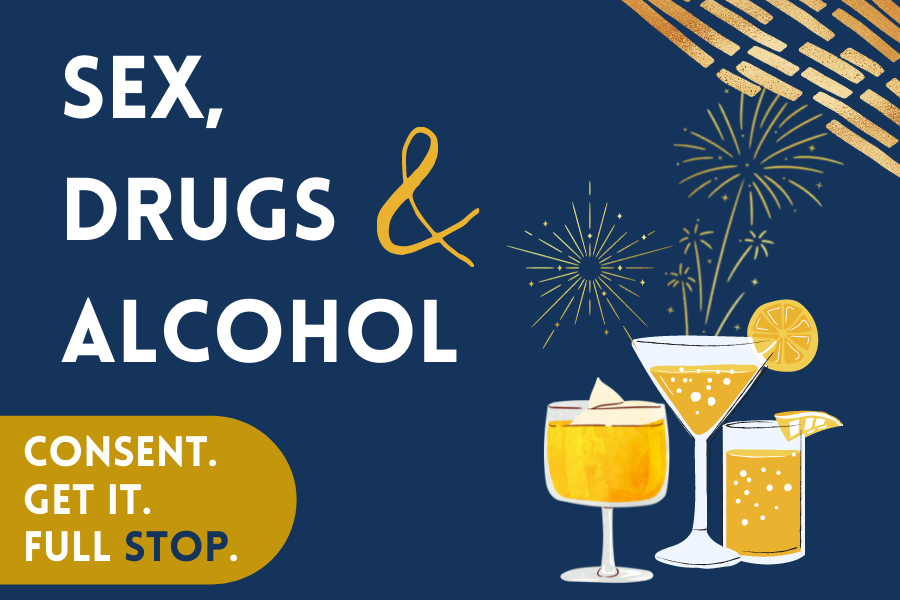Quite an eye-catching title, right? And it is not clickbait! In this blog post we will discuss the implications alcohol and drug consumption might present to someone’s ability to consent to sexual activity.
S74 of the Sexual Offences Act 2003 defines consent in the following way:
“a person consents if he agrees by choice, and has the freedom and capacity to make that choice”
Fact: Drinking alcohol and taking drugs does not necessarily mean someone cannot consent.
We all know that alcohol and drugs can affect our judgment, our capacity to communicate clearly and our ability to interpret other people’s communication so, you can already guess that alcohol and drugs do make giving and getting consent trickier – after all, consent has to be clearly communicated and understood.
Quite a few people already find talking about consent and sex awkward – even when they know their partners well – adding alcohol or other drugs to those situations is likely to complicate that crucial communication.
To understand when someone is free and capable of giving consent, we ought to focus on two key words: intoxication and incapacitation.
If someone is incapacitated, they CANNOT give consent. What is incapacitation? It is a state beyond drunkenness and intoxication (caused by either alcohol or drugs). Someone can be incapacitated and still be conscious, but they are no longer in good control of their mind and body. You can spot if someone is unable to give consent if, for example:
- They cannot speak coherently
- They confuse basic facts (do they know what just happened?)
- They struggle to walk unassisted
- They have passed out
Intoxication is different. One is intoxicated from the moment they consume alcohol or drugs, and their physical and mental control is diminished. This can manifest in varying degrees, including slurred speech, stumbling while walking and exaggerated emotions.
It is the resemblance between signs of intoxication and incapacitation that makes the distinction tricky: the key difference is that intoxication is about diminished control, whereas incapacitation is about absence of control.
If an intoxicated person gives consent, you can have sex with them, but you should reflect on why you want to do so, especially because the other person is likely to be in a more vulnerable situation.
Lots of factors can influence when someone goes from being intoxicated to incapacitated after consuming alcohol or drugs: a person’s body size, tolerance, the amount and type of alcohol or other drugs consumed, medications already in someone’s system, a person’s mood, etc. All of these will affect how well they are capable of communicating, responding, and reacting. It is your responsibility to check in, ask, and make sure they are okay with what is going on. If you are not totally sure they want to have sex – stop. Consent is something that you will need to keep checking throughout sexual activity.
It is always safer to rely on a verbal YES, whilst also paying attention your partner(s) facial expressions and body language.
In short, after a night out and a couple of drinks, always ask yourself – is your partner capable of freely giving consent? Can they give it clearly, voluntarily, and unambiguously? If there is any uncertainty – don’t do it.
Consent. Get It. Full Stop.
Written by Filipa Paes, third year student, 6.1.22
Read more about the University of Kent’s sex-positive campaign to cultivate and strengthen a culture of consent in our community of staff and students.
Check out further articles on Community Life, Consent and Support and Wellbeing.

